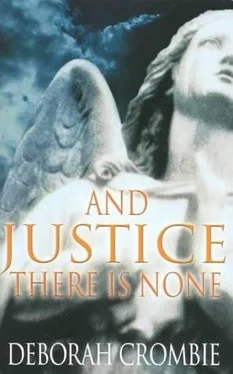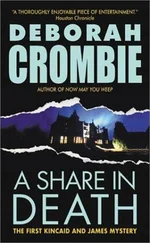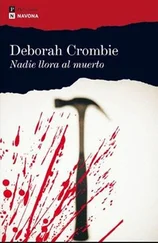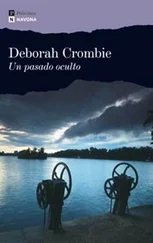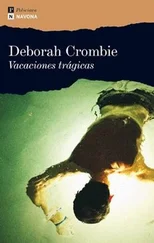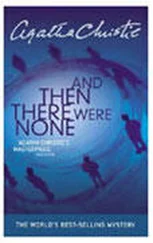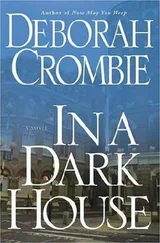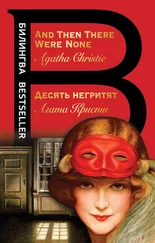A moan from her mother's bedroom brought her swiftly back to earth. Her mother suffered more and more often from what she called "one of her headaches." She would vomit from the pain, and only darkness and quiet seemed to bring her any relief. Her father fussed about as helplessly as a child on her mum's bad days, and Angel coped with the household tasks as best she could.
Whenever possible, she escaped to Betty's. Although Betty's family had to share a bathroom on the landing with two other families, the flat was always filled with the scents of good things cooking and the cheerful sound of Betty's mother's singing. It was Betty's mum who taught Angel to prepare West Indian dishes, and to buy yams and aubergines and the strange, slimy okra pods from the stalls in the market. "Who goin' to teach you to cook if your own mother don't, girl," she'd said, shaking her head in disapproval.
But it had never occurred to Angel that there might be anything terribly wrong with her mother until the leaden February day she came home from school and found the doctor in the sitting room, his black bag by his side.
"What is it?" she asked her father, her heart thumping with sudden fear.
"Your mum's had quite a bad headache today." Her dad looked exhausted, and for the first time she saw the deep lines scoring his cheeks. "Even worse than usual. The doctor's given her something for the pain."
"But why- What's wrong with her?"
"We don't know," answered the doctor, a portly, bald man whose patient voice belied his stern expression. "I think we shall have to take some pictures, Xrays, of your mother's brain. Then we shall see."
"Will she have to have an operation?"
"That's one possibility, but it's too early to say."
"I'm sure she'll be fine," her father told her, sounding as if he were trying to reassure himself as much as her. But Angel somehow knew, in a moment of gut-squeezing terror, that her life was about to change forever.
***
Anthony Trollope was buried here. And William Thackeray," Kincaid told Gemma as she bumped the car through the gates of Kensal Green Cemetery. It was just before eleven o'clock on Tuesday morning, and they had been told that Dawn Arrowood's remains were to be interred in a graveside service.
"My God." Gemma stopped at the first junction of roads and tracks that traversed the place. "It's immense. I'd no idea." Kensal Green lay at the northern edge of Notting Hill, tucked against the slow curve of the Grand Union Canal on one side and the Harrow Road on the other. A sign at the gate had informed them that this was a wildlife refuge, which meant that the grass was not mown nor the graves tended unless specifically directed by the owners of a plot. Desolate and shaggy under the gray December sky, the place had an air of comfortable decay. The bouquets of plastic flowers placed on the occasional grave looked pathetic and inadequate against the rank wildness of nature.
"It was a business. By the 1830s Londoners had run out of places to bury their dead. The churchyards were all full. So they formed a corporation to find land and build cemeteries. This was the first one, and very successful it was. It was quite the rage to be buried here." Seeing Gemma's dubious glance, Kincaid added, "Honestly. I'm not joking."
"And how do you know so much about it?"
"I've been here before," he replied, but didn't elaborate.
"Do you know how to find Dawn's gravesite, then?"
"Um, I'd go to the right, and look out for cars."
"That's very helpful," she said sarcastically, but did as he suggested. She followed the road for some way before she saw a dozen cars pulled up on the verge, empty. Away in the distance she glimpsed a knot of people in dark clothes, but the track leading in that direction was barred to motor traffic.
"Looks like we walk from here." Stopping the car, Gemma looked down at her shoes and grimaced. She'd been expecting something far more civilized. "Let's just hope it doesn't rain."
"I wouldn't tempt it," Kincaid warned, laughing, as he took her umbrella from the door pocket.
They walked along the track in silence. New headstones were interspersed among the older graves and monuments, but the newer markers were of shiny black marble and lacked the grace of their older counterparts.
"Now the Victorians," Kincaid remarked softly beside her, "they knew how to celebrate death."
Never had Gemma seen so many angels: angels weeping, angels on guard, angels reaching heavenwards. The quiet of the place began to seep into her and she found herself taking a long, deep breath. Nor was the landscape as desolate as she had first thought. The gnarled trees and thickets were alive with birds of every kind, and squirrels ran busily in the long grass. To the right she began to glimpse a building through the trees, a large structure with white, classical columns.
"The Anglican chapel," Kincaid told her. "Although chapel seems a rather meager term for such a grandiose affair. I don't think it's in use."
They approached the cluster of mourners, out of courtesy stopping a few feet away. An ornate coffin rested beside a dark hole in the earth, and at its head a black-robed cleric intoned the burial service. Karl Arrowood stood beside him in a black suit and overcoat, his head bowed, his gold hair glittering with drops of moisture. Dawn's parents stood opposite, as if trying to avoid contact with the widower. Gemma also recognized a softly weeping Natalie Caine, propped up by a stocky, cheerful-faced young man that Gemma assumed must be her husband; the remaining mourners appeared to be friends of Dawn's parents. "No unusual suspects lurking about," Kincaid murmured. "Worse luck."
The priest finished, closing his book. Karl Arrowood stepped forward and laid a single white rose on the coffin. Dawn's mother burst into anguished sobbing and her husband turned her away. Several people stepped up to Karl and shook his hand. With obvious reluctance, Natalie did the same, then gave Gemma a nod of recognition as she and her husband started back towards the cars.
Gemma and Kincaid waited until everyone had paid their respects. Arrowood stood as they approached, his hands in the pockets of his overcoat.
"Mr. Arrowood," said Gemma, "this is Superintendent Kincaid, from Scotland Yard."
"Do I take it this means the Yard has been called in? Perhaps you'll make some progress now in solving my wife's death."
"I'm investigating a different murder, Mr. Arrowood," Kincaid answered. "It took place two months ago, in Camden Passage. A woman named Marianne Hoffman was killed in the same manner as your wife. Did you know her?"
"No," said Arrowood, but he had paled. "Who was she?"
"Mrs. Hoffman sold antique jewelry from her shop in Camden Passage. She lived above the premises. Do you know of any connection your wife might have had with this woman?"
"You say this woman sold jewelry? I bought all Dawn's jewelry for her. She'd have had no reason to frequent a shop like that."
"When we spoke on Saturday, Mr. Arrowood," Gemma said, "and I told you your wife was pregnant when she died, you didn't happen to mention that you'd had a vasectomy prior to your marriage." She saw a small tick at the corner of his mouth, swiftly controlled.
"And why should I have thought such a personal matter was any of your business?"
"Because if you'd learned of the pregnancy, you would naturally have assumed that your wife had a lover. In my book, that makes an extremely strong motive for murder."
"If you are suggesting that I killed Dawn, Inspector, you had better be very careful. I loved my wife, although you seem to find that difficult to believe, and I had no reason to think her unfaithful. These procedures are known to fail, and that is what I naturally assumed."
Читать дальше
